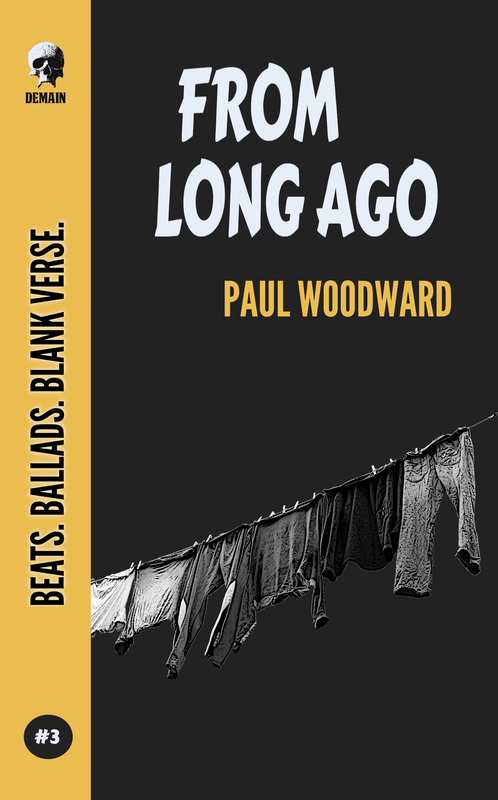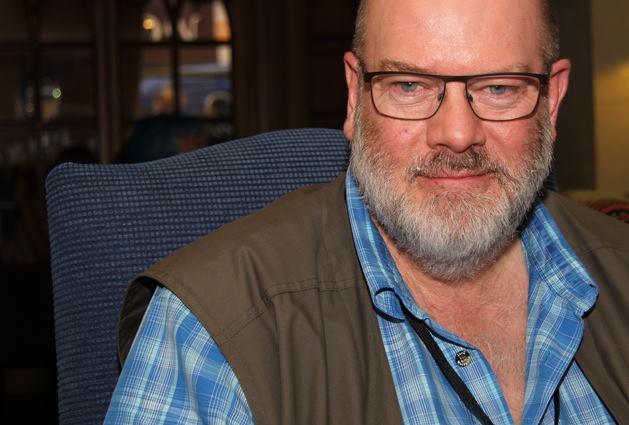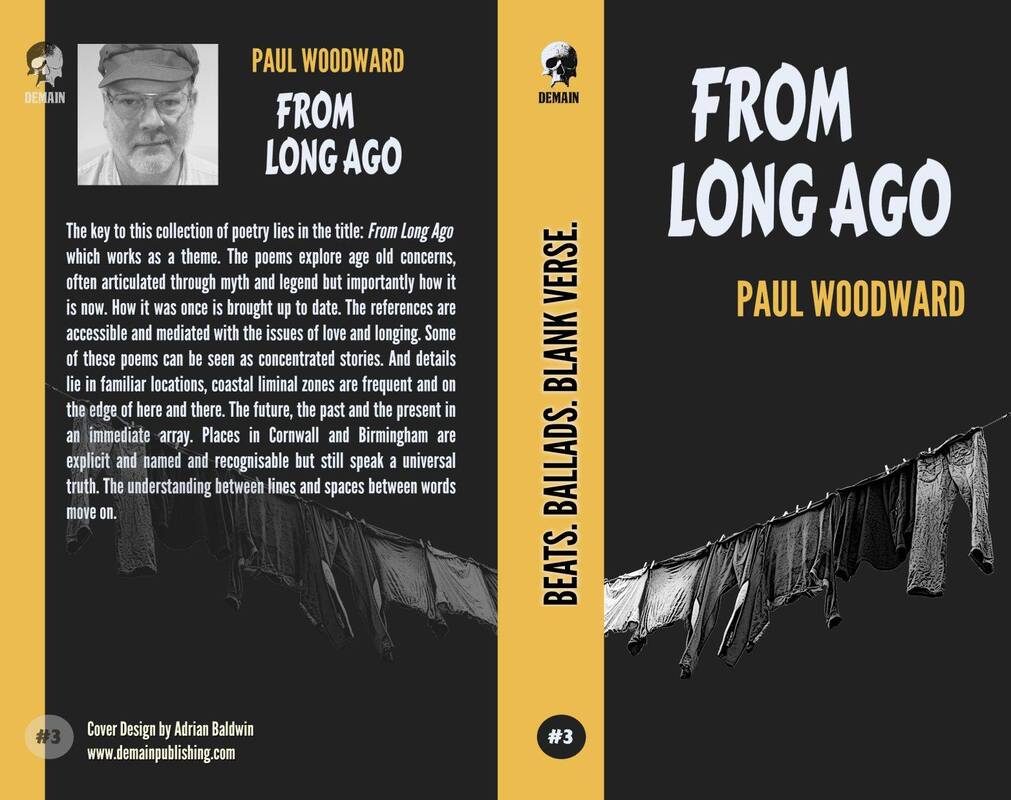|
|
|
DEMAIN welcomes poet and author Paul Woodward with his Beats! Ballads! Blank Verse! Release From Long Ago. Paul’s collection is Book 3 in the series and is released on kindle on the 29th May (though it is currently available for pre-sales). The cover is once again by Adrian Baldwin. Dean and Paul recently virtually sat down and talked about it.
DEMAIN PUBLISHING: Hello Paul, let’s get straight down to it – what poets did you read as a child. PAUL WOODWARD: Hi. I’d like to say for me that poetry as a child was songs. Songs that were sung and recited. The Yellow Submarine by The Beatles I can particularly remember. Another one was If I Had a Hammer, although I can’t remember who that was by [probably Pete Seeger – he wrote the song anyway with Lee Hays] but it was very inspiring. And later as a teenager I loved Chaucer’s Prologue to the Canterbury Tales and would read it out loud. DP: Ah, we did the Prologue at school and it was very inspiring. I know there’s been a couple of attempts in the past but perhaps now is the right time for a film / film series based on the Canterbury Tales – we will have to give that more thought. In terms of writing poetry Paul, do you find it energises or exhausts you? PW: It definitely energises me. The sense of achievement when finishing a poem, a little final breath that it’s all over and complete. A lovely feeling. Although sometimes, if I’m honest, rehearsing for live performances can be exhausting, my throat can go dry and be afraid I might lose my voice. But fortunately that sort of thing doesn’t last very long. DP: Glad to hear it, do you have to do much research? PW: Not really. An idea starts with something I already know, and hopefully understand. I prefer not to structure ideas in poetry, but give structure to the lines and the cadence of the voice. As much as I am able of course. DP: I’m interested now in how your poems develop. Do you have a particular writing method? Do you show them to anyone as you draft? PW: My poems generally develop from the germ of an idea and maybe a single phrase which I repeat to myself until more words come. Occasionally I will write something down on a scrap of paper or increasingly these days a note to myself on a smartphone before then going to the computer to type. At that point the poem will write quite quickly, and then later edited and tweaked. I can only show a poem once it’s complete, or I think it’s complete. And then I have to read it out loud to myself. And ideally read it out loud to other people, and then I can test what works and what doesn’t. DP: A good method. You mentioned live performances earlier, do you enjoy promoting your poetry and getting out there and meeting your readers? PW: Yes. It’s lovely when people clap after I’ve read out loud. It feels like an achievement for want of a better way to describe. DP: What would you say is the best experience you’ve had through your poetry? PW: On a variety show once I had a 20 minute spot and I was the last one on before the headliners who were a musical act. When I finished and sat at the back behind the red velvet curtains the crowd shouted for more. It gave me butterflies in my stomach, or did my stomach lurch? A truly wonderful experience. DP: Sounds exhilarating. Would you say poetry can save the world? PW: No. Only people can. But poetry can provide some signposts along the way. DP: With regards to poetry as a form, would you say that the internet (and social media) is destroying it or helping it thrive? PW: I’m going to answer that with a stock phrase, which isn’t something I’ve thought of myself, but found: “They said if you give 24 monkeys a typewriter each they will eventually reproduce the complete works of Shakespeare.” Another bright spark replied, “With billions of people on Facebook that’s proved to be wrong.” DP: And finally Paul, should every poem mean something or can they just be enjoyed for their words or language? PW: I think definitely every poem should mean something and the words, the language, are the vehicle which carries the meaning. One of the French philosophers Saussure, I think, correct me if I’m wrong, argued that words and language were only symbols or signposts that point towards a shared understanding [that is more or less correct and many thanks for mentioning him!]. Thank you Paul for your time. Stay safe during the “lock down” and see you hopefully on the other side. Best of luck with your B!B!B!
0 Comments
Leave a Reply. |
CategoriesArchives
November 2023
AuthorDean M. Drinkel |



